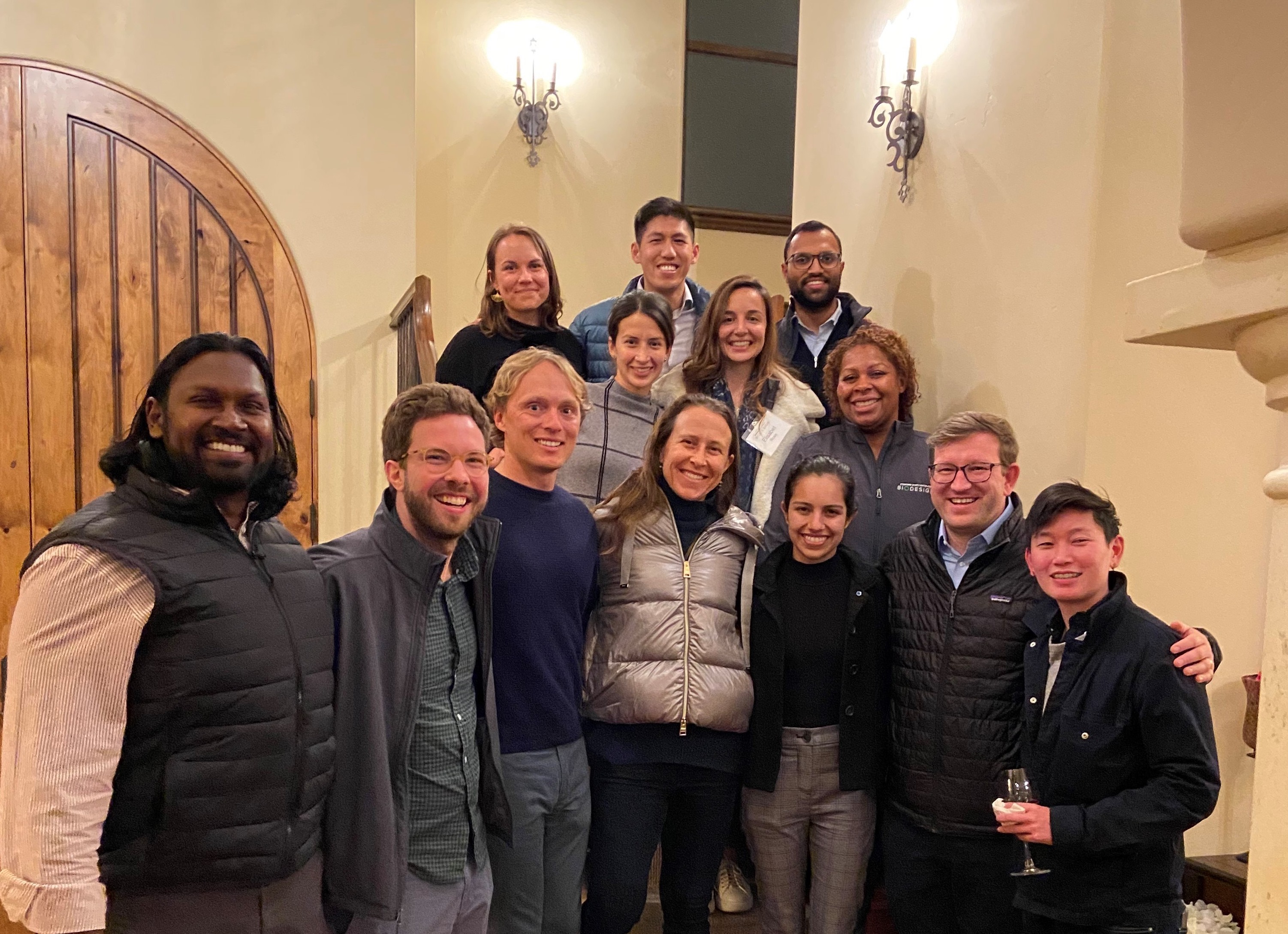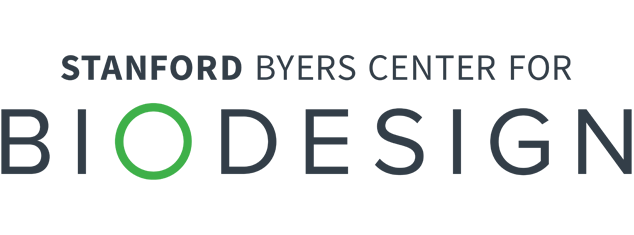Stories
Catching up with Anne Wojcicki, CEO and co-founder, 23andMe
 Anne Wojcicki spent time discussing digital health technology with the Stanford Biodesign innovation fellows after her talk.
Anne Wojcicki spent time discussing digital health technology with the Stanford Biodesign innovation fellows after her talk.
The secrets stored within DNA have always fascinated Anne Wojcicki, CEO and co-founder of 23andMe, a leading consumer genetics and research company.
“I loved genetics and the idea that you have a code inside of you that interacts in your environment and determines how your body works,” she said, “It's absolutely captivating.”
As a featured speaker in the Stanford Biodesign From the Innovator’s Workbench series, Wojcicki told the story of her groundbreaking company, 23andMe —from its origin through her decision to take the company public with a special-purpose acquisition company (SPAC) that raised nearly $600 million.
Josh Makower, MD, co-founder and director of the Stanford Byers Center for Biodesign, introduced Wojcicki to the audience of over 150 current and aspiring health innovators.
“Anne is a true innovator in so many ways for being one of the first digital health technology pioneers, and for thoughtfully creating a business model based on prevention, rather than treatment after the problem has already manifested itself as a disease,” Makower said, adding that Wojcicki’s talk fit within the broader strategy of the evolution of Stanford Biodesign.
"As we advance forward to create the first Healthtech innovation policy program and expand our curriculum to enable innovation utilizing all life science technologies, areas discussed in our From the Innovator’s Workbench series are thematic for where Biodesign is going.”
Wojcicki reflected on graduating from Yale University with a degree in biology and a clear understanding that she didn’t want to become a bench scientist. Instead, she pivoted career paths and became a healthcare investment analyst. She could hardly believe her luck that this role would pay her to follow her curiosity in studying biotech companies. She loved the work. And she found the healthcare sector disappointing. Or at least unsettling.
“I found that few aspects of healthcare actually were in my best interest,” Wojcicki said. “I would like to just stay healthy and to never use healthcare, but I found that almost no aspects of what I was investing in were focused on ‘How do I stay out of the system?’”
Although frustrated with the healthcare system, she was simultaneously inspired by a politically savvy group of patients who had banded together to form ACT-UP, the AIDS Coalition to Unleash Power, who demanded that patients play a greater role in directing research and making their own healthcare decisions.
“I started to realize that if you really wanted to understand the human genome and to have a different type of healthcare system, you had to have it driven by the people and for the people,” Wojcicki said. “23andMe came out of this idea that we're going to empower people by giving them access to their genetic information and we're going to crowdsource research.”
Wojcicki had no marketing plan and no sales strategy—mostly because there were no similar models to study—but she made sure 23andMe was grounded in science and ethics.
“My third employee was a professor, who had a huge background in ethics,” Wojcicki said. “We've always focused on how are we going to consent people appropriately.”
Because 23andMe was fundamentally a data company, Wojcicki focused on growing the community to grow the data, so her team of scientists could unearth new discoveries.
“We were like ‘Let's go for a million,’” she said, “and then at a million, we said, ‘Wow we can really do some crazy things at 10 million. And now, we have so many people that you have disease representation in pretty much all of the phenotypes that you want to be studying.”
Since its launch in 2006, 23andMe has grown its community to include more than 12 million people who have used the company’s DNA testing kits. People can use 23andMe’s products without participating in the research but they can also opt-in and agree that their data be included in the company’s research projects. To date, about 80 percent of the 12 million have opted-in.
“I have all the pieces in place,” she said, mentioning her team and the resources available to 23andMe, including the world's largest genetic database, which can be harnessed to discover novel treatments for patients with unmet medical needs.
“The future,” Wojcicki said, “is dripping with possibilities.”
The Stanford Biodesign From the Innovator’s Workbench series invites health technology innovators to share their experiences and participate in open discussions with the larger health innovation community. This event was co-sponsored by Fogarty Innovation and Wilson Sonsini Goodrich & Rosati (WSGR).
